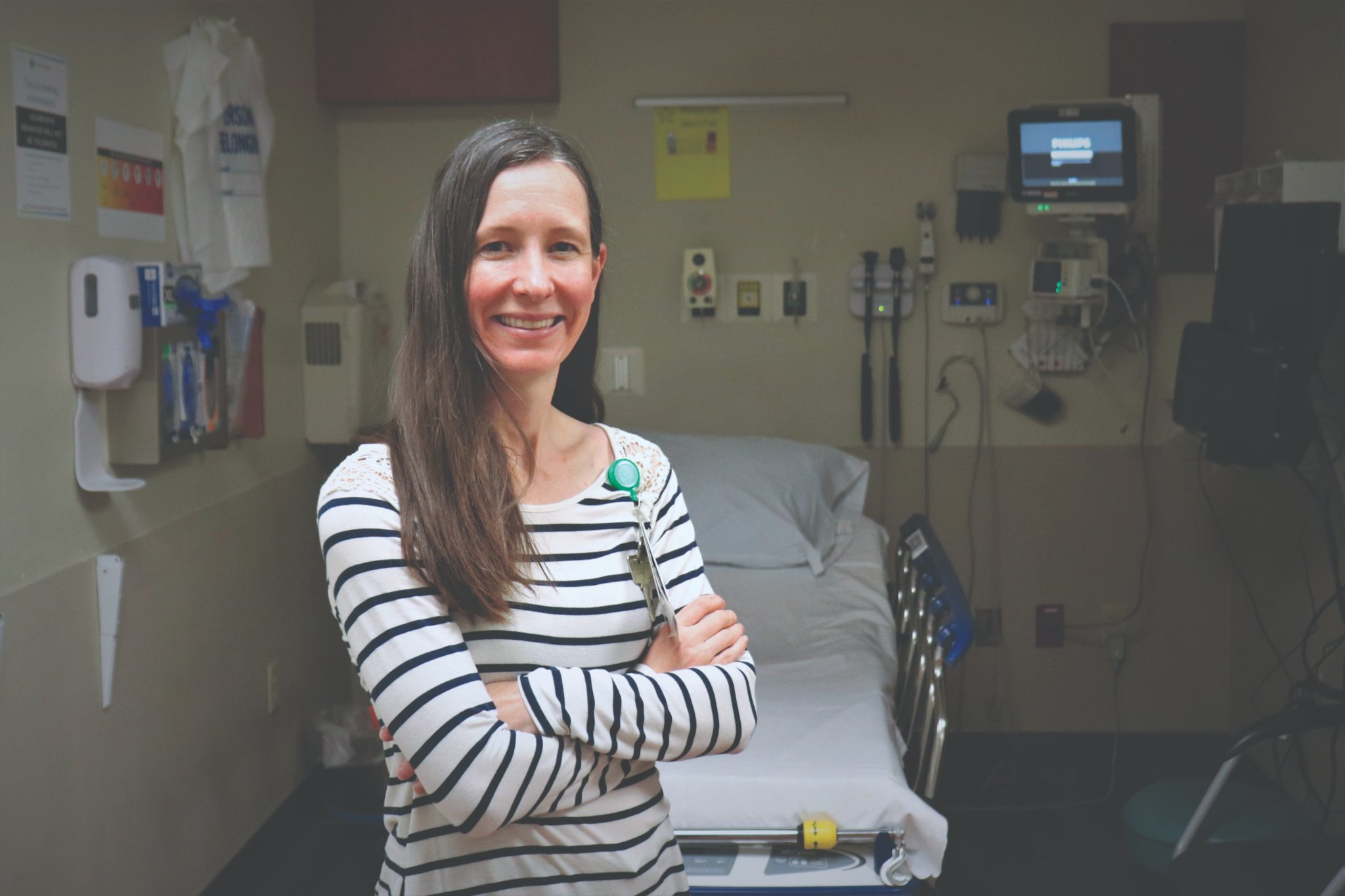
Sarah Maddock, RN, BSN, is the current Nurse Manager of St. Peter’s Intensive Care Unit and the Clinical Education Coordinator. She has a background of Emergency Medicine and Critical Care. In 2024 she took on the new role as Life Center Northwest Organ Donation Champion for St. Peter’s Health.
April 22, 2024
Organ donation is a beacon of hope, illuminating the path for individuals facing life-threatening conditions. Each donated organ represents a lifeline – a chance for someone to continue their journey, to pursue their dreams, and to cherish the moments that matter most. Registering as an organ donor is a simple yet profound act—one that has the potential to save multiple lives and leave a lasting legacy of compassion. In fact, up to 150 individuals can benefit from a single donor through organ and tissue donation. Currently, more than 100,000 people are waiting for a lifesaving transplant. These individuals rely on the generosity of organ, eye, and tissue donors, but unfortunately, there aren't enough donors to meet the need.
Whether you choose to designate your decision on your driver's license or through a national registry, your choice has the power to spark hope in the hearts of those awaiting transplantation.
What You Need to Know About Becoming an Organ Donor
There are different types of organ donation, including living and deceased donation. A living donor can donate a kidney, part of their liver, or birth tissue directly to a family member, friend, or to another medically compatible patient if they match. Deceased donation is the process of giving organs/tissues at the time of the donor's death.
People of all ages may be eligible to donate organs and/or tissues upon death so it is important to have conversations with family about your wish to be an organ donor. Typically, living donors must be in good general health, without conditions that would compromise the safety of organ transplantation.
It's important to know that being an organ donor does not affect the priority of care you receive in a medical emergency. Healthcare professionals are committed to providing the best possible care to all patients, regardless of their donor status. In the event of a medical emergency, the primary focus of healthcare professionals is to stabilize and treat the patient. Only after confirming that all efforts to save the patient's life have been unsuccessful, will the hospital contact the organ procurement organization, which will check the organ donor registry.
Communicate with Your Family
Making the decision to become an organ donor is deeply personal and should be based on a clear understanding of the donation process, potential medical implications, and the impact on loved ones. Engaging in open conversations with family members and loved ones about your decision is crucial. If you are not a registered donor, in the event of a sudden illness or accident, family members may be called upon to make decisions regarding organ donation on your behalf. It’s essential to communicate whether or not you want to be an organ donor with your family. As long as you are a registered donor, your care team is legally obligated to honor your wishes. This is true even if your family objects to organ/tissue donation. That is why having a conversation before the worst happens is so important. The same is true if you do not wish to be an organ donor.
How to Register
There are several different ways to register to become a donor. You can register through the National Donate Life Registry or when you apply for or renew your driver's license or State ID Card. Once you’re registered, your name will be listed on your state and/or the National Donate Life Registry, depending on how you registered. The organ procurement organization checks both databases upon a patient's death.
Visit the Donate Life website to learn more about organ donation and determine whether it’s right for you.
